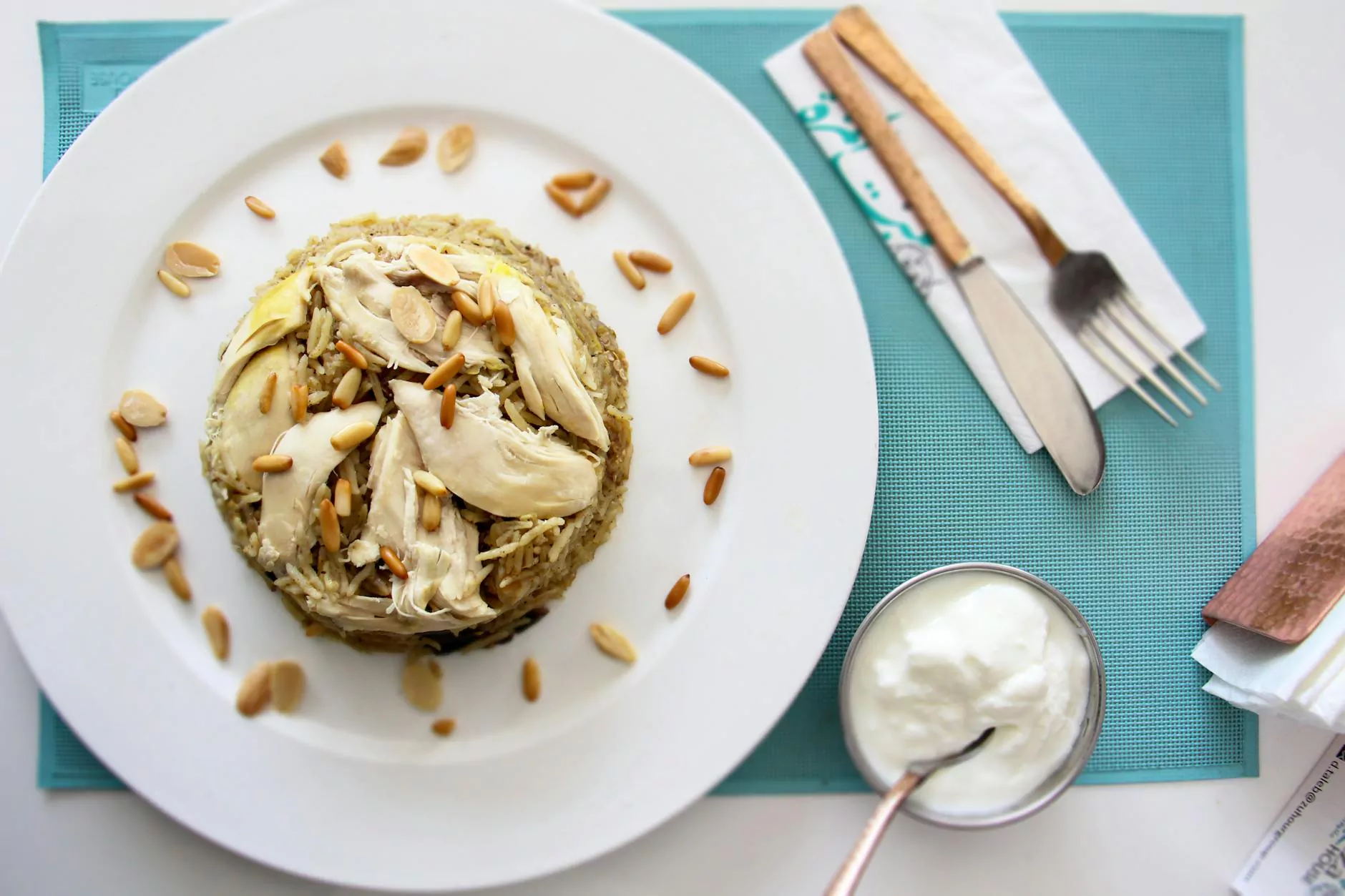Halal Frozen Chicken: Your Ultimate Guide to Quality Poultry Products

If you're in the food industry or simply a connoisseur of quality poultry, you might already be familiar with the term halal frozen chicken. This product not only adheres to specific dietary laws but also promises quality, taste, and versatility that can elevate your culinary creations.
What is Halal Frozen Chicken?
Halal frozen chicken refers to chicken that has been processed and frozen in accordance with Islamic dietary laws, known as halal. This means that the chicken is sourced from certified suppliers, ensuring that both the slaughtering process and the handling of the meat meet stringent halal requirements.
Understanding Halal Certification
The halal certification process is vital to ensure that consumers receive meat that is ethically sourced and in line with their beliefs. Ensuring a reliable certification means that:
- The chicken is from a halal-slaughtered animal.
- The processing plant is free of non-halal products, avoiding cross-contamination.
- The handling and storage of the meat occur in a manner compliant with halal laws.
The Importance of Quality Sourcing
When it comes to halal frozen chicken, sourcing is key. Brazilian poultry exporters have become leaders in the global market due to their commitment to quality, sustainability, and ethical practices. Here are some reasons why Brazilian chicken stands out:
- Superior Farming Practices: Brazilian farms employ advanced breeding and farming techniques to produce chickens that are not only halal but also raised in a stress-free environment.
- Stringent Health Regulations: The Brazilian poultry industry follows strict health guidelines to ensure the meat is safe for consumption. This includes regular health inspections and vaccinations.
- Export Quality Standards: The meat is processed in certified facilities that adhere to international quality standards, assuring customers of premium products.
The Benefits of Using Halal Frozen Chicken in Your Business
Choosing to use halal frozen chicken can significantly enhance your business offerings. Here are some compelling benefits:
- Diverse Culinary Applications: Halal frozen chicken is versatile and can be used in various dishes, from stir-fries to slow-cooked dinners.
- Long Shelf Life: Freezing preserves the quality of chicken, allowing businesses to maintain inventory without the risk of spoilage.
- Increased Market Appeal: Catering to halal consumers opens your business to a wider audience, enhancing your market reach.
How to Select the Best Halal Frozen Chicken
Selecting high-quality halal frozen chicken involves more than just checking the label. Here are crucial factors to consider:
- Check the Certification: Always verify that the chicken is certified halal by a recognized authority.
- Source Reputable Suppliers: Partner with reputable Brazilian poultry exporters known for their quality and trustworthiness.
- Inspect Packaging and Freezing Methods: Quality packaging is essential for maintaining the integrity of frozen chicken during transport and storage.
The Process of Freezing Chicken
The freezing process is pivotal in preserving the quality and freshness of halal frozen chicken. Here’s how it typically works:
- Slaughtering: Chickens are slaughtered according to halal guidelines.
- Processing: After slaughtering, the birds are processed, which includes cleaning, cut-up, and packaging.
- Freezing: The chicken is immediately frozen at low temperatures to lock in freshness and minimize bacterial growth.
- Storage & Distribution: Frozen chicken is stored in specialized facilities and distributed under maintained cold chain conditions to ensure quality upon arrival.
Why Invest in Chicken in Bulk?
For business operators, purchasing halal frozen chicken in bulk offers several advantages:
- Cost-Effective: Buying in bulk usually translates to lower prices per unit, allowing businesses to maximize profit margins.
- Consistency: Bulk orders ensure that you have a steady supply, maintaining service level and menu consistency.
- Convenience: Reduced frequency of ordering saves time and minimizes logistical challenges.
The Sustainability Aspect of Halal Chicken Production
Today’s consumers are increasingly conscious of sustainability. Many Brazilian poultry exporters have embraced practices that promote environmental stewardship:
- Organic Feed: Many farms use organic feed to raise chickens, enhancing meat quality without harmful additives.
- Water Conservation: Efficient water management practices are in place to minimize wastage during chicken rearing and processing.
- Waste Management: Efforts include recycling waste into usable byproducts, contributing to a circular economy.
Conclusion: The Future of Halal Frozen Chicken
With increasing consumer demand for quality products that align with ethical and religious standards, the market for halal frozen chicken is poised for growth. By choosing reputable suppliers, like those you can find at frozenchickengroup.com, and investing in bulk, you position your business to reap the benefits of high-quality poultry products.
Incorporating halal frozen chicken into your offerings not only meets diverse consumer needs but also plays a vital role in promoting ethical sourcing and quality nutrition. Explore the rich world of halal poultry products, and witness how they can drive your business to new heights.
Frequently Asked Questions (FAQs)
1. How can I be sure that chicken is halal?
Verification can be done by checking for halal certification marks from reputable certifying bodies on the packaging.
2. Where can I find halal frozen chicken suppliers?
Reliable suppliers can often be found through industry directories, trade shows, or online searches like frozenchickengroup.com.
3. What is the average shelf life of frozen chicken?
Typically, frozen chicken can last up to 12 months in a freezer without losing quality, provided it is stored correctly.
4. Can I use halal frozen chicken in any recipe?
Absolutely! Halal frozen chicken can be used in a variety of dishes, just like conventional chicken, making it a versatile ingredient in many cuisines.









